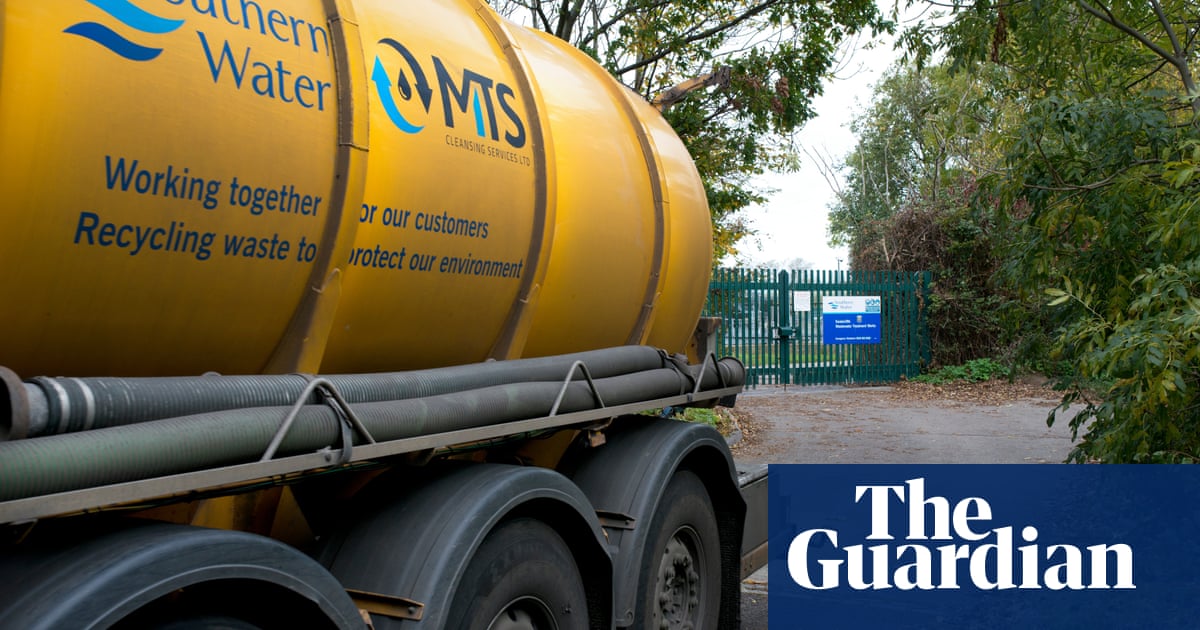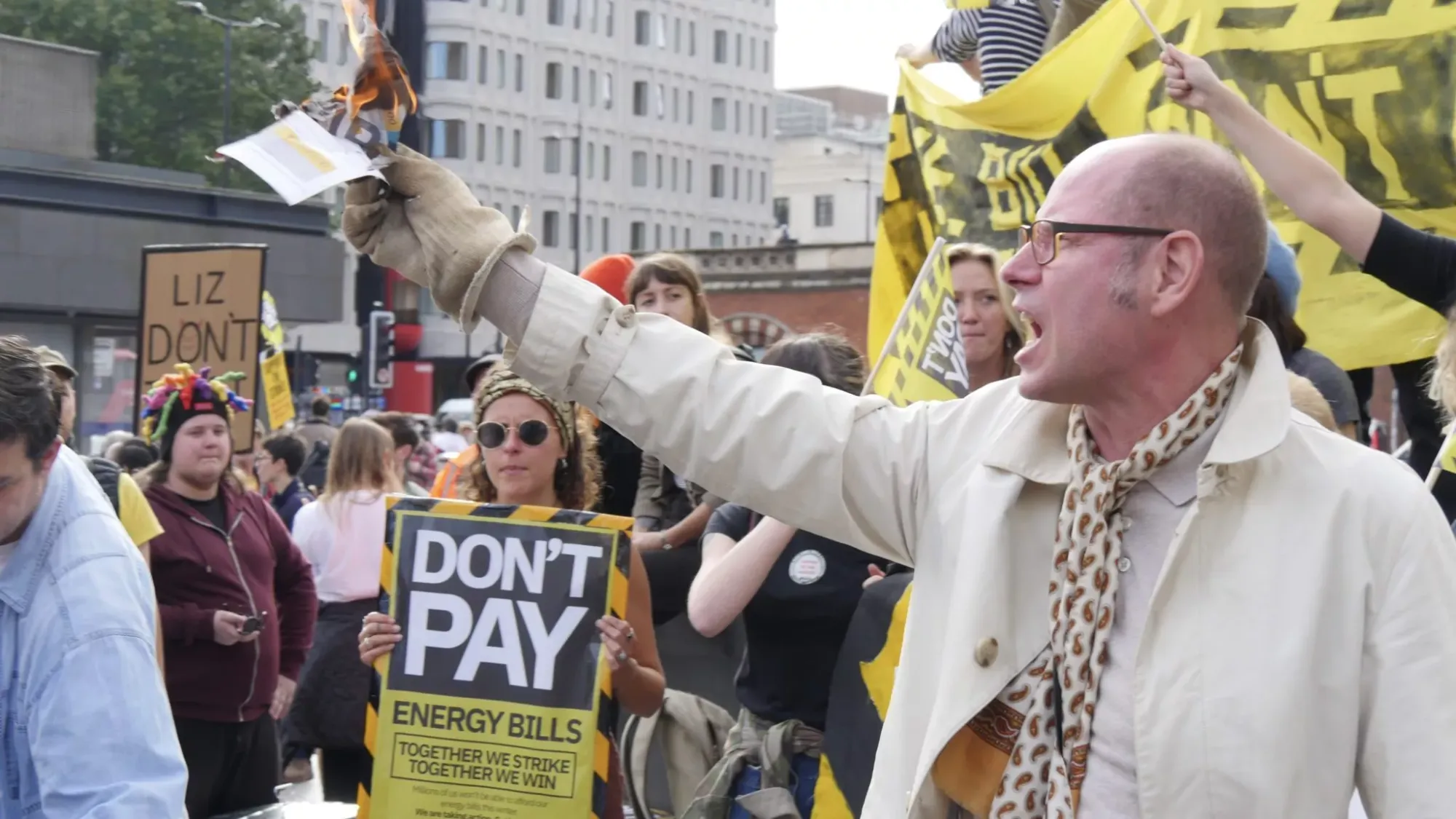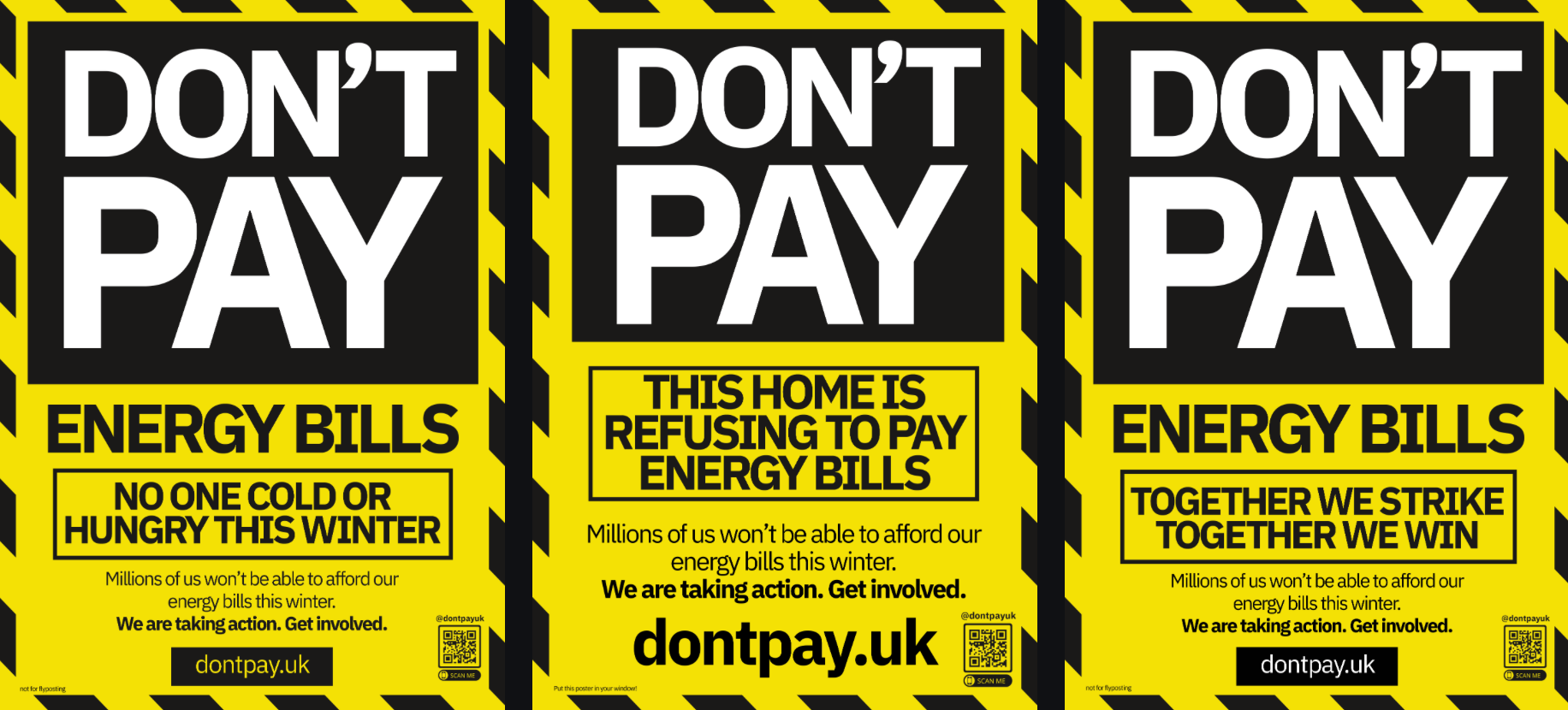Don’t Pay is a grassroots direct action campaign opposing the rise in energy bills in Britain.
As of writing, Don’t Pay UK has:
- Signed up over 250,000 people to join a payment strike on December 1. With millions more considering taking part.
- Changed the political conversation in the UK around energy costs. Resulting in a government reversal on a planned energy price increase.
- Laid the infrastructure for a massive, decentralised movement. With 32,000 volunteer organisers across the country.
- Created a social license for non-payment as a means for consumers to push back against unfair price increases.
Not bad for a campaign started on a shoestring by a handful of people just a few months ago! How did they do it? What lessons did they learn along the way?
I spoke to Simon Howard, Don’t Pay spokesperson and organiser, to find out.
We did this interview on November 8, 2022, as part of the Frontline series for DiEM TV.
Check the video above for the full conversation, or some highlights below from an edited transcript of Simon's words.
* * *

On the tactic of pledging to not pay
Simon: Withholding payment of energy bills is an action with a low barrier to entry. You just cancel your direct debit. The risk involved is actually quite low. You don't get a letter from the energy company for 28 days, and even then you're invited to pay. There's quite a lengthy process before you get anywhere near court.
The most powerful punch is often the one that's not thrown.
But when thousands of people do this at once, it creates an enormous cash flow problem for the energy companies.
With Don't Pay UK, we got 250,000 people to pledge not to pay their energy bills. And with our campaigning, we helped make the idea of withholding payment acceptable. Polling showed that up to three million people were considering canceling their direct debits.
And so without doing anything at all, in October we managed to steer the UK government into changing its course, and partially meeting our demands. The most powerful punch is often the one that's not thrown.
On what inspired the campaign
Simon: The successful poll tax rebellion in the 1990s inspired our campaign. But we also looked at more recent protests, like the mass payment strike in Kent [a county in southern England] last summer.
The strike worked – the company wrote off many people's water bills as a result.

On tapping into a public mood
Simon: When we started our campaign in June, the whole of the UK was already having a conversation about rising energy prices. All we did was stick up a lightning rod and channel that down into a political movement.
We are not building this movement. We're channeling it.
Around the same time, fringe right-wing populist characters in this country were also thinking about a 'don't pay' campaign against the cost of living crisis. And I know what their answers would have been: anti-environment, anti-immigration.
With our campaign we reacted quickly, and possibly imperfectly. But nonetheless, we took the initiative. Thanks to that, the conversation on energy costs is now about the issues we think are important: fossil fuels and corporate profits.

On using WhatsApp to build a decentralised network of members
Simon: There are two levels to participating in our campaign: pledging, and agreeing to be an organiser.
32,000 people signed up to be an organiser. That means we put them together with people in their area into a WhatsApp group, based on postcode. [If there's no WhatsApp group in someone's area, they're invited to create one.]
And then we leave people to link up with the other WhatsApp groups around them, and create bigger structures. They come up with their own messaging; they do their own recruitment. It's completely decentralised.
And it works. We now have 300 active WhatsApp groups. And when we called on the groups for decentralised protests, actions popped up everywhere.
As the campaign goes on, we're trying to integrate those groups into a structure. For example, there are now regional meetings that are going on in different parts of the country.
A small group runs our central website. But there is more and more input coming from people who've arrived at the campaign through joining one of these WhatsApp groups.

On using authentic voices as spokespeople
Simon: We had an enormous amount of mainstream media interest when we started the campaign. So we had a spokesperson programme, to supply media with authentic voices: people from local groups, from different areas, different backgrounds. Instead of the 'semi-celebrity influencer' left-wing spokesperson model we had in the UK up till now.
There's no one face associated with Don't Pay UK.
There's no one face associated with our campaign. Which is a real strength of it.
On the key take-away
Simon: The Powers That Be are not as powerful as you think they are.
If you get enough people together, and you work in a decentralised way, you can win. If you pick your moment, if you band together, you can win. Even with low resources.
This model works. Change is possible.



